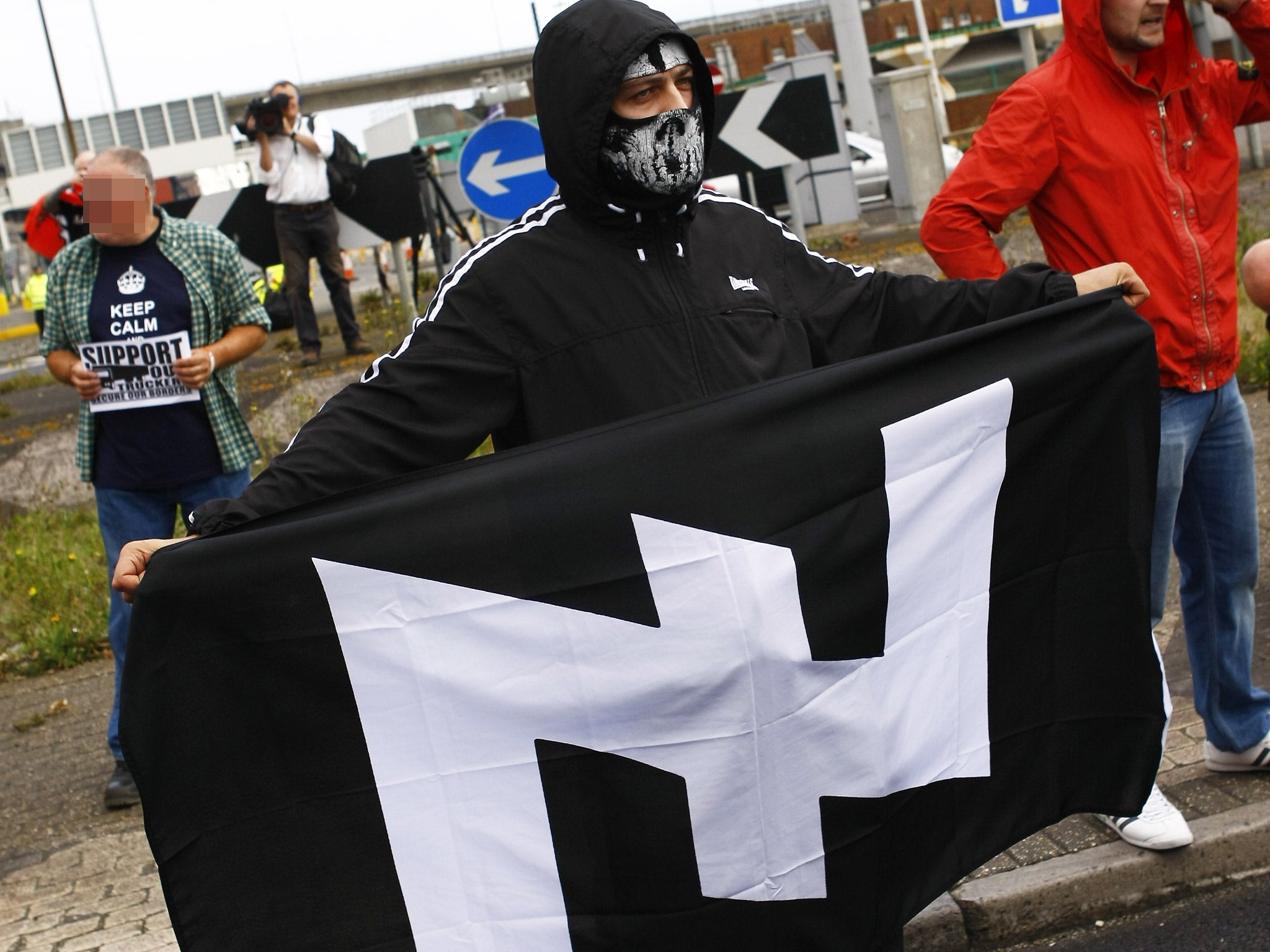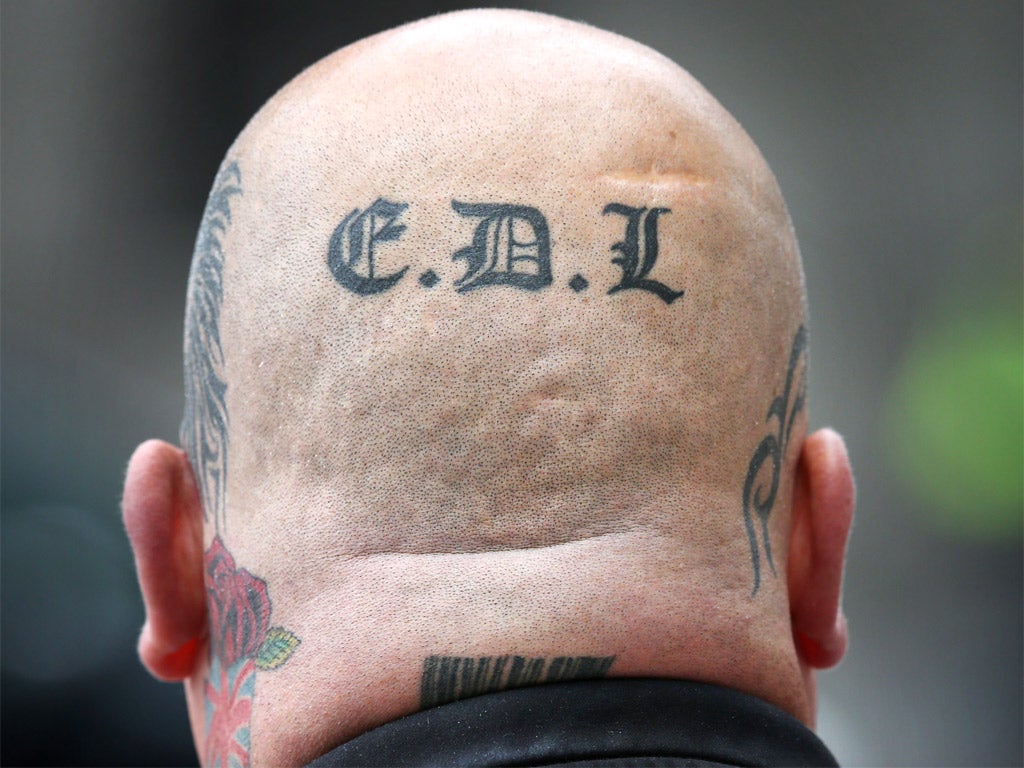The new anti-Semitism: Young British neo-Nazis are on the rise, campaigners warn
Established far-right groups are collapsing due to infighting among extremists

The far right in Britain is in disarray and at its weakest for many years, but is producing potentially dangerous new threats, including a rise in teenage neo-Nazis, campaigners warn today.
The decline of the British National Party (BNP), which last year expelled its former leader Nick Griffin, is part of a general collapse caused by an epidemic of infighting among far-right extremists, according to a study.
The report published today by the campaign group Hope Not Hate finds that despite fertile conditions for the rise of extremism, the most prominent groups such as the BNP and the English Defence League (EDL) are currently fragmented and haemorrhaging support.
But the group warned it had detected several disturbing early signs of revival, including the emergence of an openly racist neo-Nazi group – National Action – whose members are mostly young men in their late teens and early 20s. The group was behind a violently anti-Semitic campaign against the Labour MP Luciana Berger after a sympathiser – 21-year-old Garron Helm – was jailed for posting an image of the politician with a Nazi-era yellow star on her forehead and the hashtag “Hitler was right”.

Following the jailing of Helm, the Liverpool Wavertree MP was the subject of more than 20 death threats on Twitter and more than 2,000 hate messages. A dozen members of the group were arrested by Merseyside Police ahead of a demonstration last month.
Matthew Collins, who co-authored the State of Hate annual report, said: “National Action are the first group to emerge in the UK for many years which is violently and avowedly Nazi. They have a young following – teenagers and men in their early 20s – and they are capable of confrontation. They are very ideologically driven and see themselves as the new force to replace what they see as the flabby and flaccid nature of much of the rest of the far right.”
Despite reports that National Action is seeking to recruit on university campuses, Hope Not Hate said it was in reality seeking to target students in an effort to stir up confrontation.
Campaigners said other demonstrations, including a picket of the South African embassy in London seeking to highlight the “genocide” of white farmers, seemed to be a part of an effort by the group, which has an estimated 50 activists, to raise its profile.

Nick Lowles, the chief executive of Hope Not Hate, said: “Despite otherwise favourable conditions, far-right hate networks are really struggling at the moment.
“But as we have seen with the events in France in recent days, the situation can change very fast. It’s disturbing to see the rise of neo-Nazis like National Action – young, committed activists who have deeply anti-Semitic, National Socialist views.”
The group said it was also aware of calls from within the far right for Tommy Robinson, the former leader of the EDL who left the group in 2013 after talks with the anti-Islamist think-tank the Quilliam Foundation, to return to the party.
It added that the authorities also need to remain vigilant for so-called “lone wolf” attacks by single extremists.
Soldier Ryan McGee, an EDL supporter, though not a member, was jailed two months ago after a nail bomb and a cache of weapons were found at his home.